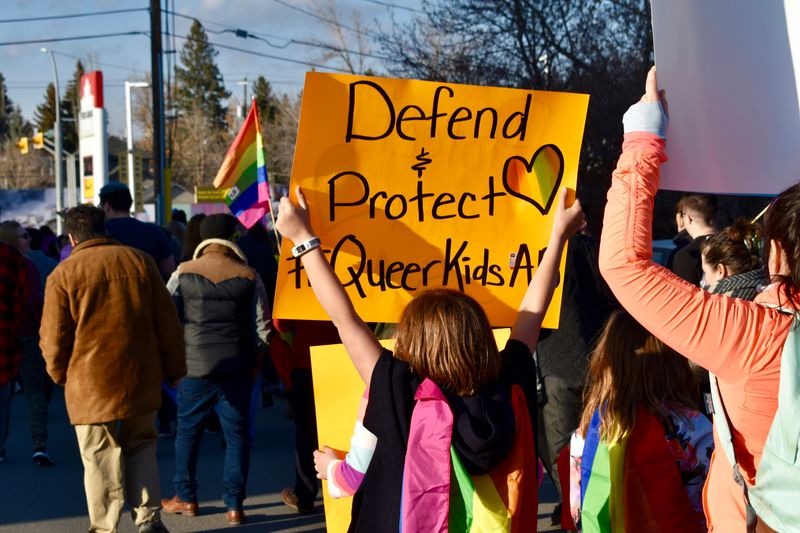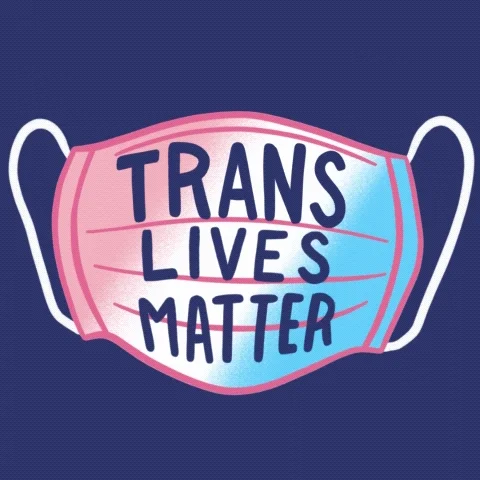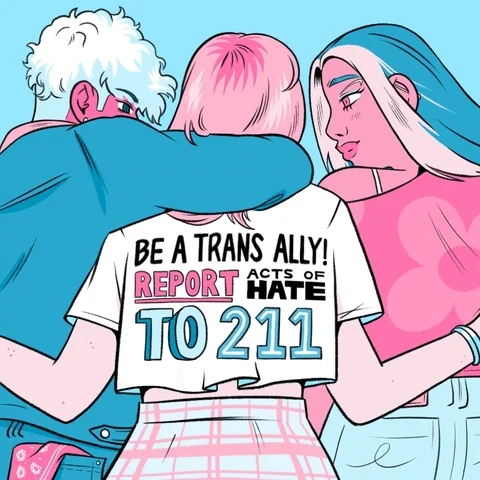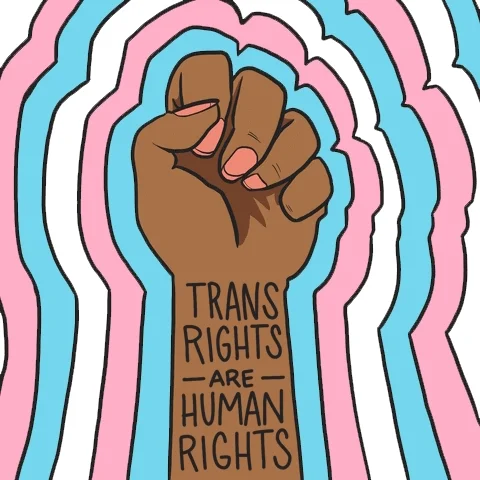As a result of misinformation around trans identities and the prejudice and biases that lead to the personal challenges trans people face, as a whole, the trans community faces many systemic issues.

By understanding and reflecting on the diversity and range of these issues, we can better understand the challenges the trans community faces and why it is important to support them.
Legal Barriers
In 2020, transgender identities were criminalized in 13 countries, with 37 more de-facto criminalizing it, and only 25 of the 96 countries that allow a legal change of gender do so without prohibitive requirements. These requirements can include human rights violations such as "compulsory medical treatments, genital surgery, and sterilizations."

When trans people cannot legally change their gender, it makes traveling, voting, accessing public services, employment, and more, difficult. Even in progressive countries, trans people may not have the same rights as others.

Did you know?
Economic Factors
Poverty
In the US, 29.4% of trans people live in poverty. For Black trans adults, this is 39%, 48% for Latine, and 35% for Alaska Native, Asian, Native American, and Native Hawaiian or Pacific Islander trans adults.
Homelessness
25% of trans people have been homeless at some point in their life, with 77% of youth reporting "'family rejection, abuse or being asked to leave home' as a cause of their homelessness."
 Photo by Denin Lawley on Unsplash
Photo by Denin Lawley on UnsplashUnemployment
27% of trans people in the US are unemployed, compared with 18% of cisgender people. They're more likely to work part-time, thus not having access to benefits like health insurance, and their average annual household income is $17,000 less than a cisgender person's.

Similarly, "27% of transgender people have been fired, not hired or denied a promotion due to their trans identity."

In the UK, 1 in 3 employers were less likely to hire a trans employee, with many not knowing the laws regarding discrimination against trans people or believing their workplace would be inclusive.
Did you know?
Subscribe for more quick bites of learning delivered to your inbox.
Unsubscribe anytime. No spam. 🙂
Mental Health
Being transgender is not a mental illness. However, living in society that is prejudiced against you has adverse effects on their mental health. 39% of trans individuals report experiencing severe psychological distress. This is often called called "minority stress".

In Australia, trans young people (ages 14-25) are 15 times more likely to attempt suicide compared to the general population. At the time of survey, 41% had suicidal ideation in the last two weeks, and nearly 80% reported self-harm during their lifetime. Nearly half have either an anxiety or depression diagnosis.
Healthcare
Medical transition is made difficult to access due to financial, legal, insurance, and other barriers. In the US, 29% of trans adults have been denied healthcare.
 Research shows that gender-affirming care reduces mental health struggles. For children, this includes access to puberty blockers (a temporary delay to puberty) or HRT that aligns with their gender. This healthcare is safe and reduces suicidality, despite efforts to ban it.
Research shows that gender-affirming care reduces mental health struggles. For children, this includes access to puberty blockers (a temporary delay to puberty) or HRT that aligns with their gender. This healthcare is safe and reduces suicidality, despite efforts to ban it.

97% of people are happy with their transition, and of those who aren't, less than 1% felt that transitioning was not right for them.
Quiz
Why is it important for trans people to access gender-affirming healthcare? Select all that apply:
Harassment, Abuse, and Violence
In the US, about half of trans people have experienced verbal harassment. 25% of trans children are physically attacked and more than 10% are sexually assaulted. 10% of trans adults are either physically attacked or sexually assaulted.
The National Transgender Discrimination Survey found that "19% of respondents had experienced family violence 'because of their transgender identity or gender non-conformity'."
In the UK, hate crimes against transgender people have increased by 186% from 2018 to 2023. Most of these hate crimes aren't reported.

Take Action
Being transgender affects a lot more than just someone's gender identity. As a whole, the trans community faces legal, economic, and health issues, along with higher rates of violence. Knowing this can help you understand how to better advocate for trans rights across a variety of factors.

Your feedback matters to us.
This Byte helped me better understand the topic.
